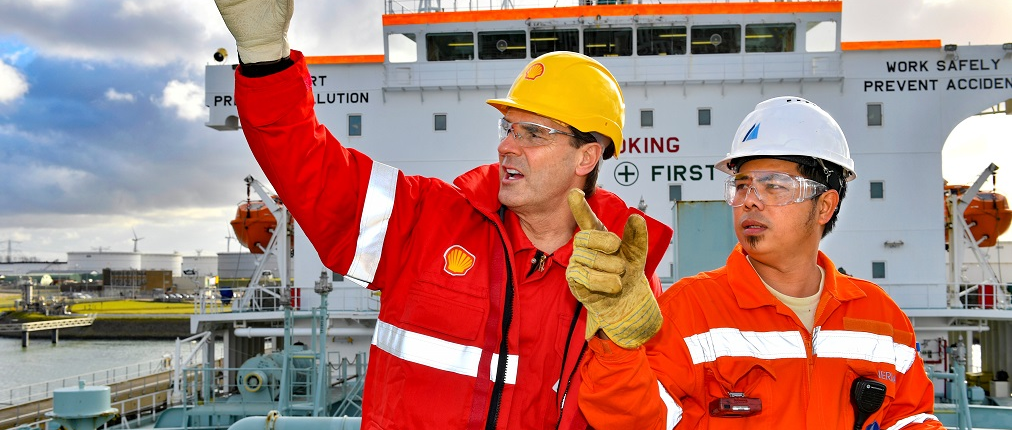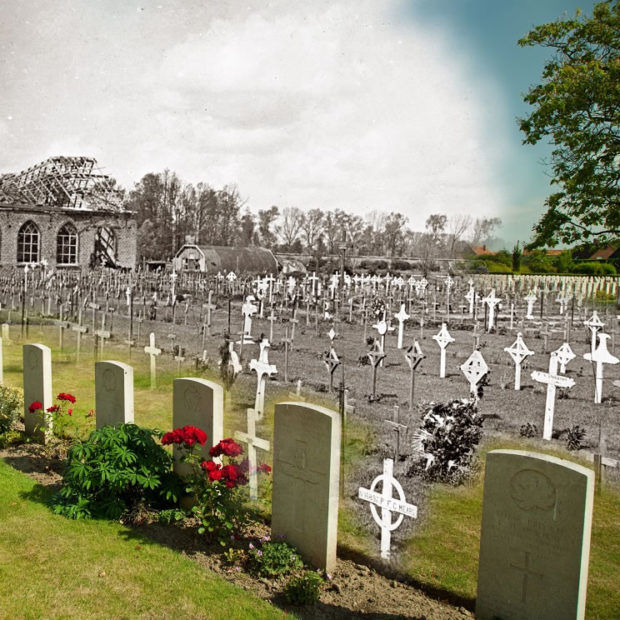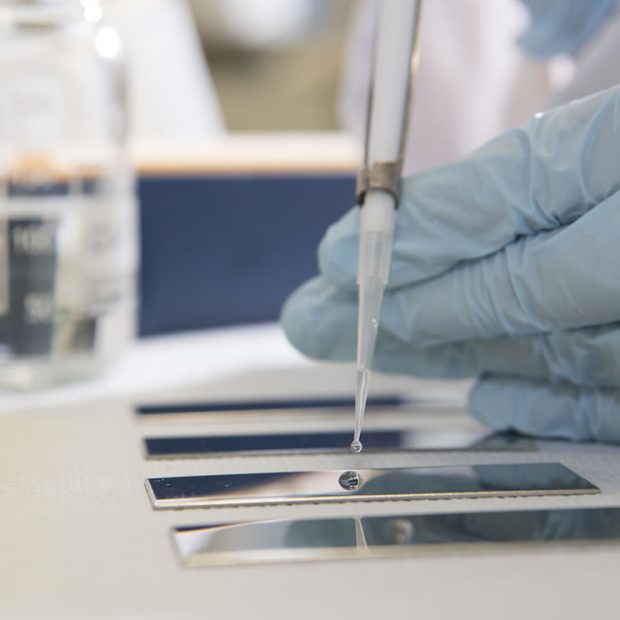Hartley News Online Your alumni and supporter magazine
Alumnus Dr Grahaeme Henderson OBE (BSc First Class Honours Civil Engineering, 1976; PhD Civil Engineering, 1980) is a leading world advocate for safety and the environment – causes that he’s advanced significantly during four decades of work at Shell and through partnerships with the University. As Global Head of the company’s Shipping and Maritime group, Grahaeme reflects with Hartley News Online on his extraordinary and industry-transforming career since graduating from Southampton.
Shipping underpins the global economy, transporting over 90% of the world’s trade – from the food we eat, to the energy we use and the things we buy every day. Although it’s the most efficient means of transporting materials, as trade has become increasingly globalised, so has the impact of shipping on the environment – including an increasing proportion of CO2 and other greenhouse gas emissions.
During the last 10 years at Shell, Grahaeme has led shipping industry efforts in safety, efficiency, and decarbonisation. Cited as one of the top 15 most influential people in the global shipping industry, Grahaeme has been committed to delivering significant reductions in serious incidents and greenhouse gas emissions from shipping – making strides through new technologies and more collaborative working. These achievements have been widely recognised, not least with an OBE in the 2020 Queen’s Birthday Honours.
Grahaeme has also maintained a strong relationship with his alma mater, working with the University to tackle safety and environmental challenges. In 2015, Dr Henderson was appointed Adjunct Professor to the Southampton Marine and Maritime Institute – the largest single entity of its kind in the world, integrating all marine and maritime disciplines across the University. In recognition of this and other valuable contributions to Southampton and society, he was awarded an Honorary Doctor of Science degree in 2018.
Reflecting on a lifetime in industry
Grahaeme recently sat down for an interview with Charles Elder, the University’s Media Relations Manager, to reflect on his time at both Southampton and Shell, the two organisations’ relationship, and the importance of safety and sustainability at sea.

Years at Southampton
His natural flair for mathematics and numbers, the appeal of tangibility in engineering, and Southampton’s green appearance and friendly atmosphere all led Grahaeme to undertake a BSc in Civil Engineering at the University – and he in fact loved the experience so much that he stayed to do a PhD. “I’d say that friendliness is something I see even today when I go back to campus,” remarks Grahaeme. “I felt very much at home there.”
A keen footballer, Grahaeme says playing for the University’s team is one of his top memories – winning the all-England universities tournament, and subsequently representing Southampton in a tour of the US. Two of his fellow players even went on to play professionally.
His PhD thesis delved into sea wave climate and wave energy, using his work on mathematical 3D computer modelling of waves in the English Channel to provide practical solutions to coastal erosion, including sand loss on Bournemouth’s beaches. Grahaeme then spent a year covering his supervisor’s lecture course during a sabbatical period, before his father sagely advised he try his hand at an industry role.
Starting out at Shell
Shell seemed like a natural fit for Grahaeme’s first step into industry – offshore developments were moving into ever deeper water, and his PhD research bore relevance. Starting on a graduate training programme in London and Scotland, including working on oil installations in the North Sea, he then moved to Shell’s Central Office in The Hague – which marked the start of a 25-year period working abroad. The next move was to Brunei, just five weeks after getting married!
It was here that Grahaeme had a career-defining realisation. An offshore accident resulted in the death of an employee. Upon seeing the man’s wife and young daughter – who would now return alone to their Malaysian village – it struck Grahaeme that, in the absence of their husband and father, both lives would be dramatically and irreversibly affected for evermore.
Even to this day, I think about what life must be like for that young girl without her father. What does she say to her children when they say, ‘tell us about your father’? And she says, ‘he got killed in an accident’.
Safety in the industry has been a key driver of Grahaeme’s work ever since. Alongside this, the environment and sustainability are the two other major priority areas of Grahaeme’s work – again, passions sparked by his time in Brunei, a country that’s 95% natural rainforest.
Over the subsequent years, these central themes fed into all his postings around the globe: Nigeria together with his wife (and their new-born daughter, only eight weeks old); back to The Hague for six months (with their new-born twin boys); onto Syria (with their three children, all under the age of three); and later returning to both The Hague and Brunei – this time as the Country Chair and Managing Director, leading one of Shell’s largest oil- and gas-producing companies. Grahaeme eventually moved back to London, where he has developed and implemented Shell’s shipping strategy.

Moving across to shipping
Shell’s origins were in fact in shipping – as the name suggests, importing seashells to wealthy people in London – and therefore their shipping group remains prestigious, at the roots of the company. Shipping is a huge global business in Shell, and with 2,000 floating assets, a Shell cargo is loaded or discharged somewhere in the world every five minutes. In the 10 years in Shell Shipping and Maritime, Grahaeme feels proudest of his achievements in safety.
Shipping is one of the most dangerous industries in the world; a recent UK study found that a worker is five times more likely to have a fatality on a ship than in construction. At the time of his appointment, the industry’s safety performance was extremely poor, and so Grahaeme gathered the CEOs of 500 companies at four locations across the globe to co-create the ‘Partners in Safety’ programme.
Through this combination of enhanced leadership, training, and care and wellbeing, the safety performance of ships and other floating assets on Shell business has improved ninefold in the past decade – reducing the frequency of actual or potentially serious incidents from one every seven days to one every 63 days. The softer aspects are important, and on the value of care, Grahaeme comments: “If you show care – for employees and their families – what you find is that people want to work for you and do a great job for you, which leads to an improved motivation to do the job safely.”
Grahaeme has also been leading the entire world shipping industry on the ‘Together in Safety’ programme over the past few years – which brings together all the globe’s shipping associations for the first time, setting the vision of a zero-incident industry. What’s more, he proposed the use of mathematical models and so-called ‘weak signals’ – which indicate a major accident might happen – to help predict the likelihood of big incidents in advance; the 60 shipping companies now employing this technology have since seen major reductions in risks of fires, explosions, and collisions.

Southampton-Shell partnerships
The University is currently in the process of implementing its first-ever sustainability strategy, which acknowledges the need to work pragmatically with partners such as Shell on the road to a more environmentally friendly organisation and society. This March marks a year and a half since the launch of our Centre for Maritime Futures – the result of a £1.5 million gift from Shell, the largest from a corporation in Southampton’s history. The Centre brings together University and industry partners, drawing on their extensive expertise in maritime research to transform energy shipping into a safer, cleaner, and more efficient industry.
“It was evident to us in Shell that we needed access to far-reaching thought-leadership skills in academia,” explains Grahaeme. “We wanted to work with a partner which had a strong talent pipeline of graduates, and also access to world-class research. A Shell team looked at a range of universities – not just in the UK, but also overseas – and were impressed with the breadth and expertise of the research at Southampton.”
The Centre for Maritime Futures leverages Shell’s industry experience and Southampton’s academic knowledge – particularly around safer, cleaner, more efficient fuels, decarbonisation, and digital advances. How does Grahaeme view the collaboration? “Let me say: we have been very impressed with the results and the University’s ability to bring together varying academic skills. It’s been a fulfilling relationship, which has recently been extended into something even more far-reaching.”
Grahaeme notes: “We’re living in a time of great uncertainty – the pandemic, Brexit, and fast-moving technology changes – but uncertainty shouldn’t lead to inaction. Shell and Southampton are aligned in driving forward progress, moving from discussion to delivery.” And Grahaeme believes this is creating exciting, tangible opportunities for graduates and academics – much like those that drew him to study engineering at the University – as well as for the institution as a whole.
Southampton has the opportunity to be – and I mean this – the world’s leading university in decarbonisation-related technical and engineering solutions. We’re working on solutions for the next 30 years – these could be big, big gains. There are answers to important questions, and those answers are in the hands of the University students. How exciting is that? I wish I was at the University now, doing that research work!
Returning to Southampton and the future
Grahaeme’s many connections to the University – as a double alumnus, Adjunct Professor, and Honorary Doctor – mean that he is indeed frequently welcomed back to campus, often to share his knowledge and experience with students. And it continues to be a learning process: “I still find it very challenging, and it forces me to really know my subject! The students ask such great, great questions. And I learn a lot from them in other ways too – not just in how they’re thinking, but what they think about society, and what they think about Shell too!”
Later this year will see Grahaeme retire after four decades of transforming the industry at Shell. He feels confident that his successor, Karrie Trauth – who he recruited into Shell – will carry the torch of safety and sustainability forward, further advancing the significant strides that Grahaeme and his colleagues have made in shipping over the past 10 years.



